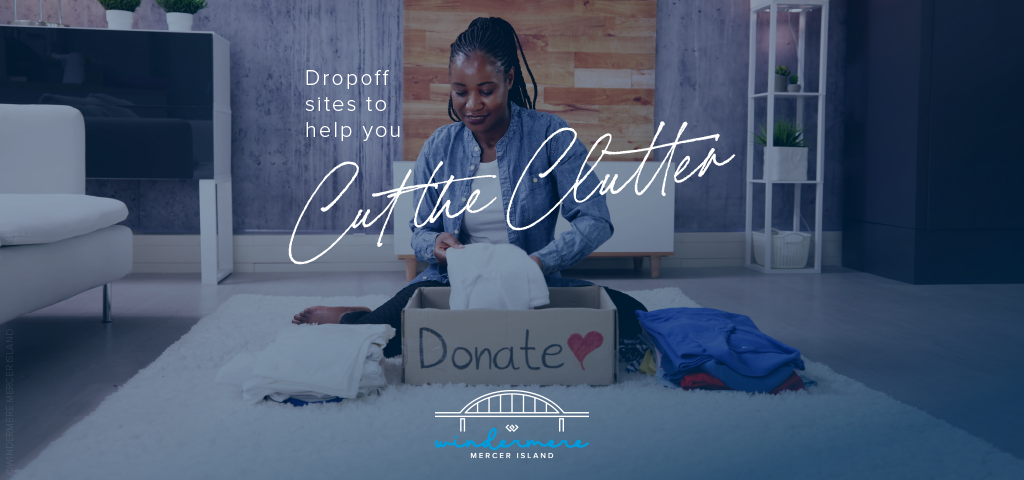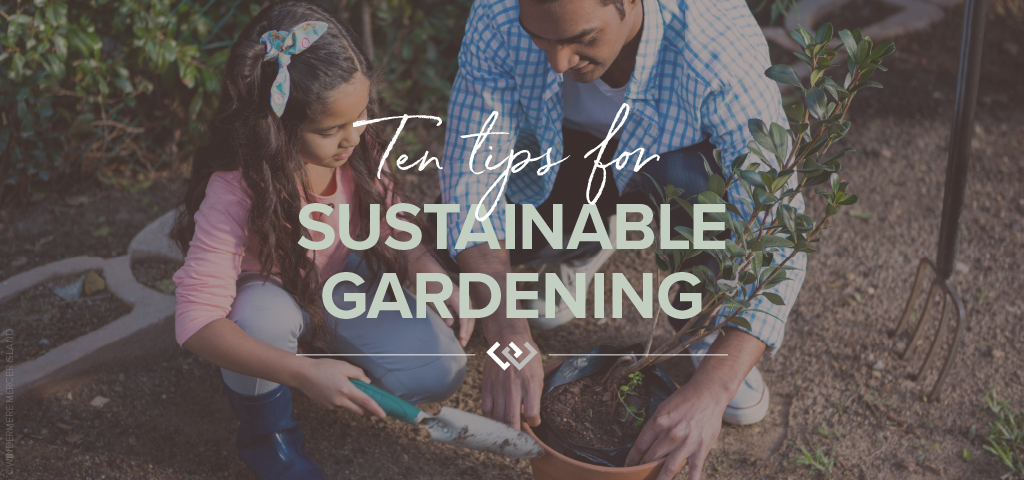Cut the Clutter: Donation & Recycling Locations Around the Sound

Spring is coming, and with it comes a chance to clear out the old and start fresh—whether it’s those ever-growing piles in your garage and attic, that closet you can barely close, or a horror-movie-inspired basement. Here are resources to reclaim your space and put your unwanted items to good use (or recycle and give them their own fresh start)…
Donations | Recycling | Disposal
Donations
CHILDREN’S HOSPITAL BARGAIN BOUTIQUE
Furniture/furnishings, jewelry, antiques, collectibles, and new or gently used men’s, women’s or children’s clothing. Be sure to check items they don’t accept.
seattlechildrens.org/giving/bargain-boutiques
Estates: (206) 327-3067
Vehicles: (888) 205-8941
Bainbridge Island: 1050 Hildebrand Lane, Suite G-1 | Bainbridge Island, WA 98110 | (206) 842-5567
Olympia: 2020 Harrison Ave. NW | Olympia, WA 98502-5097 | (360) 236-8245
GOODWILL
Accepts donations of a wide range of items, from exercise equipment, to clothes and home decor items and furniture. Net proceeds help fund job training and education programs.
evergreengoodwill.org/donate-goods
KIDVANTAGE
Donate your quality used children’s clothing, shoes, baby gear, toys, books, bedding, and maternity clothing. You’ll help to fill the nearly 4,000 orders of essentials that they provide to underprivileged children and expectant moms each week.
Issaquah: 1510 NW Maple St. | Issaquah, WA 98027 | (425) 865-0234
Shoreline: 17230 12th Ave NE | Shoreline, WA 98155 | (425) 209-1136
Bremerton: 1463 NE Dawn Road, Suite B | Bremerton, WA 98311 | (360) 616-0235
MARY’S PLACE
Gratefully accepts gently used clothing, luggage, twin size sheets/blankets, paperback books, and small household items (dishware, utensils, mugs, and small appliances such as microwaves) to distribute to families in need.
marysplaceseattle.org/get-involved/share-your-stuff
Donation Center: 4521 6th Ave S. | Seattle, WA 98108
Shelter (small donations only): 720 Blanchard St, Seattle
NORTHWEST CENTER
Big Blue Trucks accept clothing, household goods, sporting goods, tools, toys & more to support people with disabilities. Here’s what they do and don’t take.
bigbluetruck.org/drop-off-locations
NORTHWEST FURNITURE BANK
Furniture bank for homeless families in transition in South King County and Pierce County. Here’s what they accept and you can arrange a pickup if you live within a 25 mile radius of Tacoma.
117 Puyallup Ave | Tacoma, WA 98421 | 253-302-3868
SAINT FRANCIS HOUSE
Accepts clean, gently used clothing for men, women & children as well as kitchen & household items. All donations are passed on directly to those in need.
stfrancishouseseattle.org/support-us
169 12th Ave | Seattle, WA 98122 | 206-268-0784
SAINT VINCENT DE PAUL
Drop off your sorted donations of gently used clothing, housewares, toys, shoes/accessories, linens, books, and electronics to one of their thrift stores (here’s what they don’t accept). $0.89 of every dollar funds programs that provide neighbors with food, clothing, eviction prevention, case management, and more.
SEATTLE’S UNION GOSPEL MISSION
Accepts food, clothing, furniture, vehicles & housewares in their mission to support our homeless neighbors.
Distribution Center: 8226 South 208th Street, Suite G110 | Kent, WA 98032 | (206) 723-5700
Furniture Pick-Up: (507) 593-7024
Recycling/Disposal
E-CYCLE WASHINGTON
WA Department of Ecology’s free program for residents to recycle electronics (including TVs, computers, monitors, tablets, & more), with participating locations across the state.
FRIENDLY EARTH
Free recycling of electronics, flat screen TVs/monitors, appliances, BBQs, computers, lawn equipment/tractors, motorcycles, & more! Recycling with a fee for copiers/printers, refrigerators, A/C units, solar panels, & large rear-projection TVs. Paid data destruction available as well. Get the full scoop here.
1560 1st Ave S. | Seattle, WA 98134
(206) 367-4111
ONE GREEN PLANET
Free recycling of electronics, computers, copiers, printers, ink/toner, appliances, bikes/scooters, scrap metal, machinery, phones/chargers, & more. Recycling with a fee for appliances containing Freon, flat screen TVs, tapes/CDs/floppy disks, alkaline batteries, & X-ray film. Here’s the full list.
851 Houser Way North, Suite B | Renton, WA 98057
(425) 996-3513
RECOLOGY
With a zero waste goal, Recology stores accept hard to recycle items like CFL light bulbs, household batteries, hard-cover books, small electronics/appliances, block Styrofoam, and bicycles. Here’s the fee list for non-customers (if you’re already signed up for their curbside service, you can drop off limited quantities for free).
Issaquah: 317 NW Gilman Blvd, #22 | Issaquah, WA 98027
Highline: 15858 First Avenue S, #A100 | Burien, WA 98148
Shoreline: 15235 Aurora Ave. N | Shoreline, WA 98133
RUBBISH WORKS
Removal of nonhazardous materials for eco-friendly disposal—up to 50% of hauled away materials are recycled and the rest is donated when possible.
(888) 594-5078

We earn the trust and loyalty of our brokers and clients by doing real estate exceptionally well. The leader in our market, we deliver client-focused service in an authentic, collaborative, and transparent manner and with the unmatched knowledge and expertise that comes from decades of experience.
© Copyright 2025, Windermere Real Estate/Mercer Island.
 Facebook
Facebook
 X
X
 Pinterest
Pinterest
 Copy Link
Copy Link

